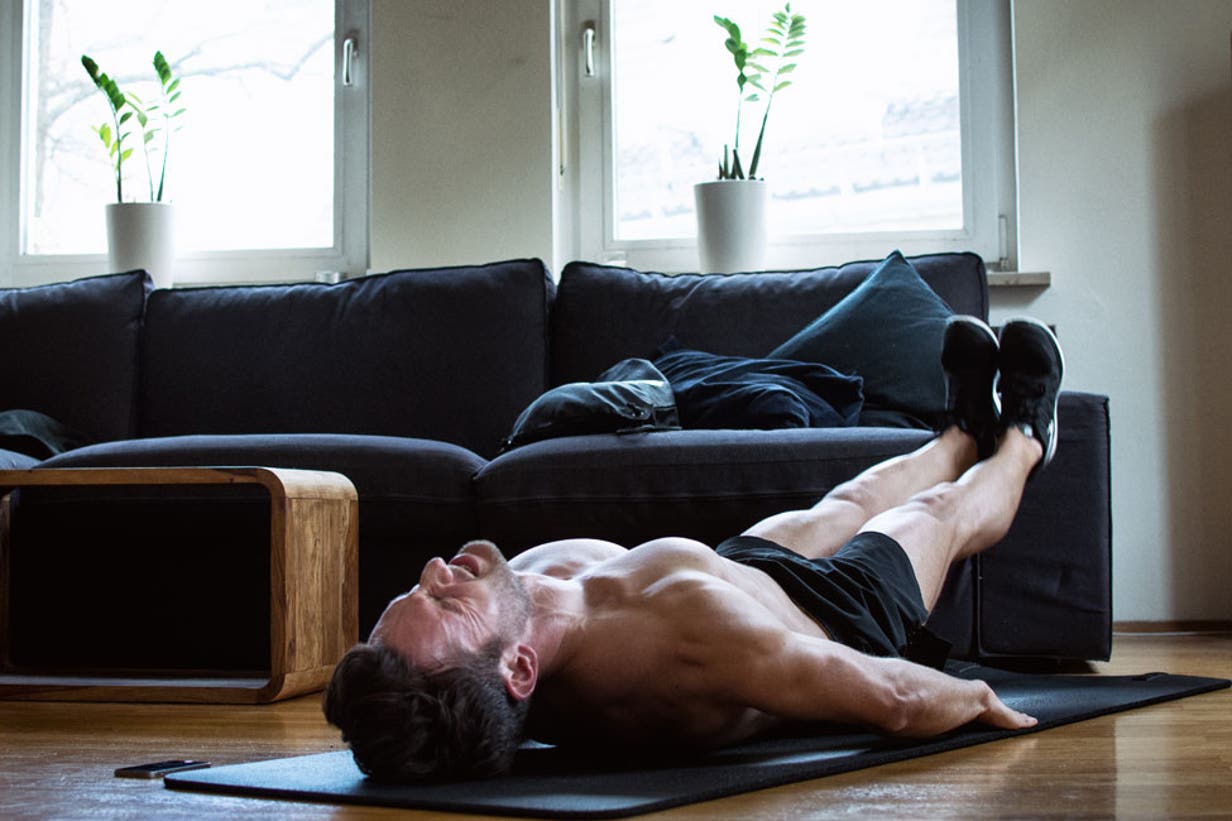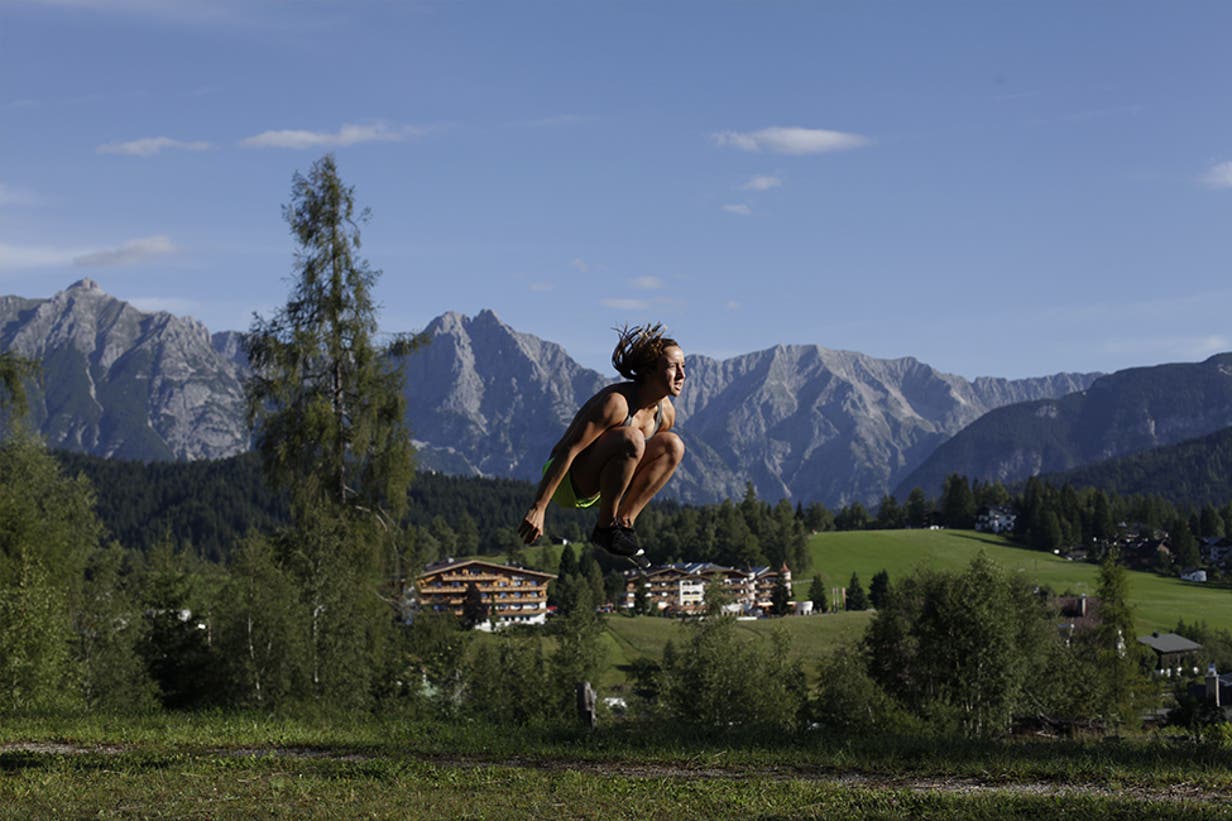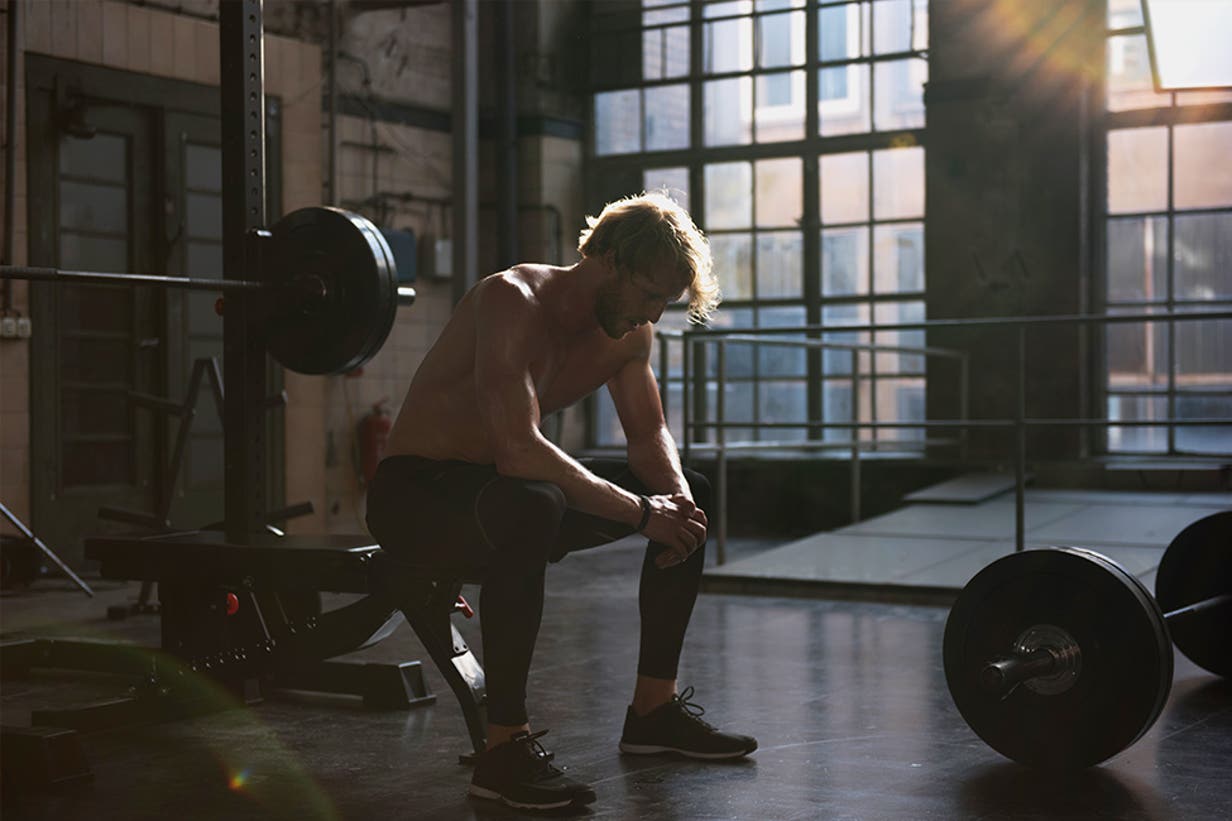With Freeletics you can train absolutely anywhere: at home, in a park, at the gym. All these locations offer various surfaces to train on, and as your body is always in contact with the ground, it’s important to learn more about different surfaces and their impact on training. So let’s scratch the surface and see what your best options are.
The training spot: Home sweet home

Ever thought of your flat or bedroom as a training area? It’s about time you did. What could be more comfortable than your homeground? You’re unaffected by the weather, and since you don’t have to go anywhere, you save time and energy. This makes it easier to just roll of out bed and do a quick workout in morning or last thing before you go to sleep if you’ve had a busy day. Another benefit: Fresh water, your kitchen and no one else to bother or distract you. Plus, you can play whichever track you like without having to worry about anyone else’s taste in music.
The surfaces: Wooden floors, tiles, carpet
Since doing burpees on a hard floor is about as fun as it sounds, a workout mat is the best solution! Not only will it act as a cushion for your body during push ups and sit ups, it also gives you a better grip, so you don’t slip while doing exercises like climbers. If you don’t have one yet, check out our Freeletics workout mat.
The training spot: Lost in the wild

After a long day at work in front of a screen, fresh air is exactly what you need. Head outside for your workout and enjoy the many benefits of training outdoors. If you already have a training spot you regularly visit, the feeling of just being there will get you into beast mode before you even hit start. Can’t find enough motivation yourself? Don’t know where to go? The Training Spot feature in your Bodyweight app enables you to add and find training spots, join training groups and train with others. Go to your Freeletics Bodyweight app, open the training tab and find the “training spots” section right at the bottom. By allowing location access, you will be provided with suggestions for spots close to you.
The surfaces: From asphalt to forest soil
The outside world offers a large variety of surfaces to train on. Before you choose one, find out how they affect your training, and what you’ll need for each one.
#1: Asphalt and concrete
You’re likely to find that almost all training grounds in cities and urban areas are made of concrete or asphalt. These are the hardest surfaces to perform workouts or to run on. So, good running shoes and a workout mat are essential to absorb the vibrations when you hit the ground and prevent injuries like shin splints.
#2: Tartan / rubber ground
Public stadiums have tracks made of tartan. This synthetic material is the right balance between soft and hard: it absorbs the vibrations and offers a better grip for you to increase your performances. To be more comfortable, you can even use shoes with track spikes. Another benefit: Distances are measured and indicated on running tracks, which makes them perfect for your running workouts and sprints.
#3: Parks
Parks are our favourite spot as they are a great way to connect with nature after a long week in the office. Soft grass absorbs the vibrations of high impact exercises, like jumps. But beware when wet, as it can be slippery and often hides holes, rocks and roots. Don’t let this put you off though. Training on an uneven surface is good brain stimulation. It forces you to be careful and focus. In addition, a rough ground makes a large range of different muscles work to maintain your stability.
#4: Dusty trails
Roots, branches, puddles, rocks: In the wild you are always faced with various challenges…Perfect!! Nothing is better for your endurance than having to run uphill and downhill. Mud and dirt are slippery, so make sure to wear shoes with a good grip and ankle support. Stay focused, keep to the track and just allow the wildness to sharpen your body and mind.
#5: The beach
The beach is either the most relaxing place to be, or the most challenging. Sand is undoubtedly the most uneven surface to run on. And when your feet sink in, it takes even more power and energy to take the next step. Running barefoot or with running shoes is up to you, but keep in mind that water is nearby and wet socks are not comfy. Either way, running on the beach is tough, but even more refreshing.
The training spot: The Gym

Hello from the inside – the floor in your gym is made for training. Since hygiene is a priority in gyms, easy-to-wash, wooden floors or synthetic hard floors are typically chosen. In the weight area, to prevent any damage when the weights are dropped, protection is usually also added, for example bracing underneath the floorboards, and special synthetic mats. Also, you can usually find mats for your bodyweight training there. When you’re following the Gym Coach, your local gym is the best option, although you don’t need much equipment to also train at home.
The treadmill gives an indoor alternative to your training, for example when it’s raining but you still want to go for a run. Although not quite the same as enjoying the great outdoors in the morning, intervals on the treadmill allow you to change speed quickly and also keep track of your exact pace.
So, what is the best surface? There is no perfect answer. Still, the key word is variety. Switching up your surface and training spot pushes you to use different muscles and therefore improves your adaptability and skills. Now, get your shoes on, follow your Freeletics Coach and leave your tracks on whichever surface you visit today!